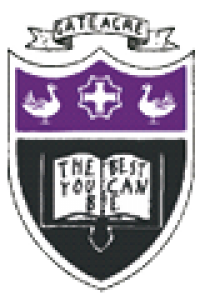Our Intent, Implementation & Impact
Intent: Our purpose and ambition
The Music Department seeks to facilitate the personal and musical development of our students. We aim to provide students with excellent opportunities to become confident musicians, and diverse musical experiences that enable them to better understand the world they live in.
We have strong links with various music industries and strive to provide our students with the qualifications necessary for their chosen career paths. Gateacre Music Department have a proud history of producing students who have gone on to make their career from music, or used it a springboard for a plethora of different avenues of work.
The Music Department believes that demanding and challenging work is an entitlement to all students, rather than something that is an ‘addition’ or an ‘enrichment’. It is our intent to push and challenge all students both practically and academically as a matter of course. Access to difficult material will be secured within lessons through scaffolding, modelling, feedback and independent practice. It is our intent that teaching and learning will be routed in the science of learning and evidence-informed.
We also believe that it is essential that our students acquire the educational, cultural and social capital to which they are entitled: quality music education and extra-curricular experiences should be open to all regardless of background.
Implementation: Design, Pedagogy and Assessment
Sequencing
There is significant thought and consideration into the order that topics (and supporting lessons) are taught. Knowledge is delivered and accumulated in a logical, cumulative progression.
Building Blocks
Key strands and recurring themes are identified within each of the faculty’s domains. The big ideas are made explicit to students and built on what Willingham calls ‘the unifying ideas of each discipline’.
TEEP
All lessons are delivered using the TEEP cycle and the underpinning elements of good instruction. The latest research and principles that form part of the science of learning are bolted on to this model.
Retrieval Practice
Students are given the opportunity to revisit academic content and practical skills: this is essential for music. Strategies such as interleaving, dual coding, low stakes quizzes and knowledge organisers are incorporated.
Differentiation & Challenge
All students are challenged. Differentiation does not take the form of ‘bespoke’ worksheets. Students are continually challenged to improved practical skills through an array of scaffolded music.
Assessment & Feedback
Assessment is clearly focused and varies depending on purpose. Assessments are planned to ensure high validity and reliability. They feedback into teaching where appropriate. Feedback is focused and often verbal for practical skills.
Literacy & Numeracy
Disciplinary literacy techniques are used to explicitly develop students tier one and tier two vocabulary. Opportunities to develop numeracy are taken where appropriate.
Cultural Capital and SMSC
Opportunities are planned within schemes of work for students to advance their cultural and social capital and develop as individuals on a spiritual and moral level. This is explicit to students.
Linking Curriculum to Careers
Students are to be given the opportunity to look at careers linked to Music. The department has several links with industry and the world of work that it regularly exploits for the benefit of our students.
IMPACT: Attainment, Progress, Knowledge, Skills and Destinations
The impact of our curriculum will be assessed each year in accordance with school policy, and using the different types of data available to us. This data will include exams results analysis, examiners reports, emerging research, QA, student voice and staff voice. Data in Music will include a great deal more teacher observation/listening than many other subjects, particularly at KS3. As such the Assessment Skills booklet is an important tool for teachers and students as a way of monitoring progression.
As mentioned above, our students go on to a variety of destinations, and the department is proud of its industry links, and on the numbers of students who go on to make music their chosen career path. We will endeavour to maintain links with students (many of whom are on our destinations display board) in order to provide role models for current students.

